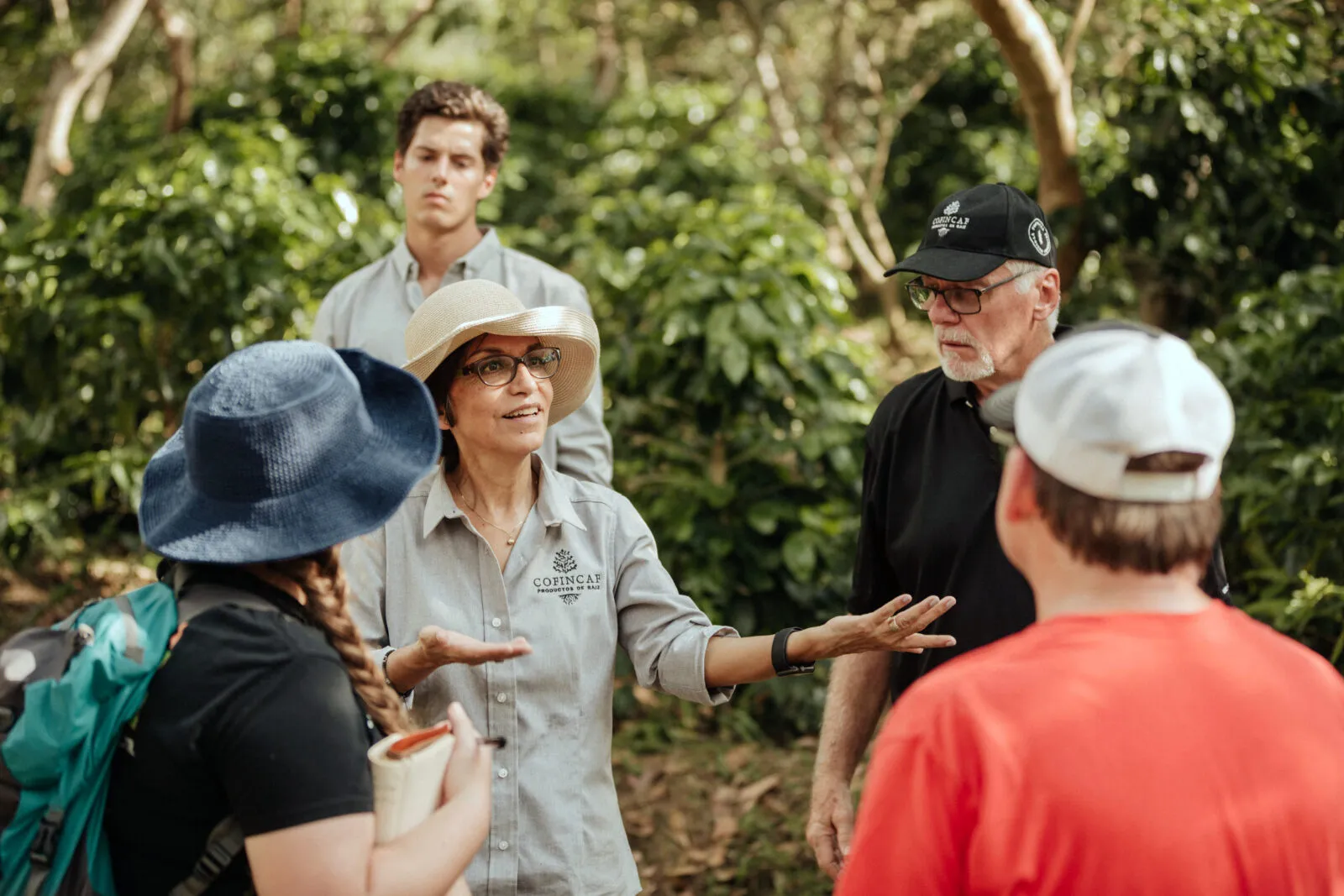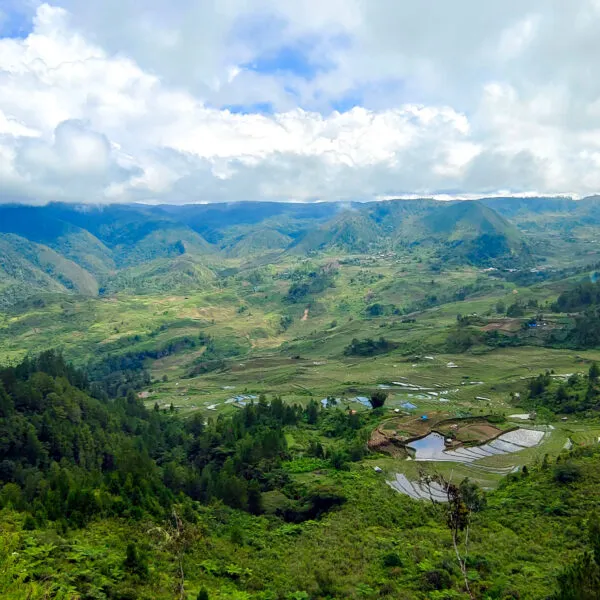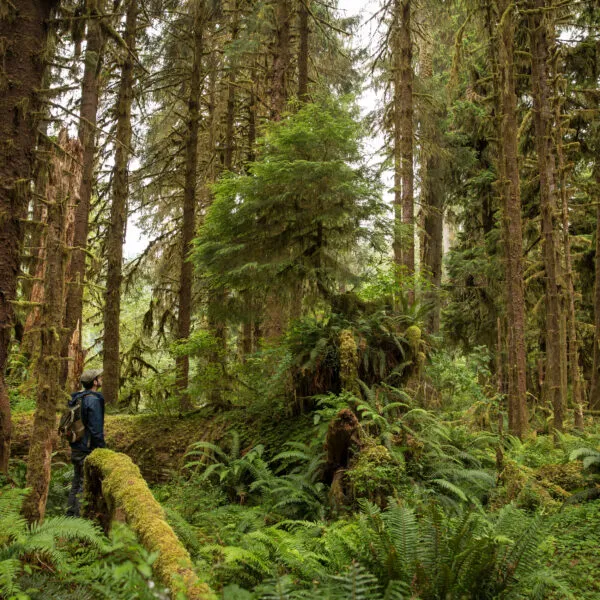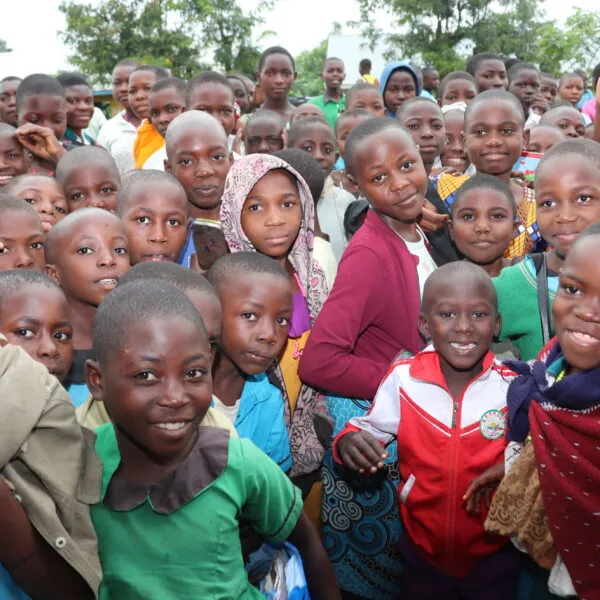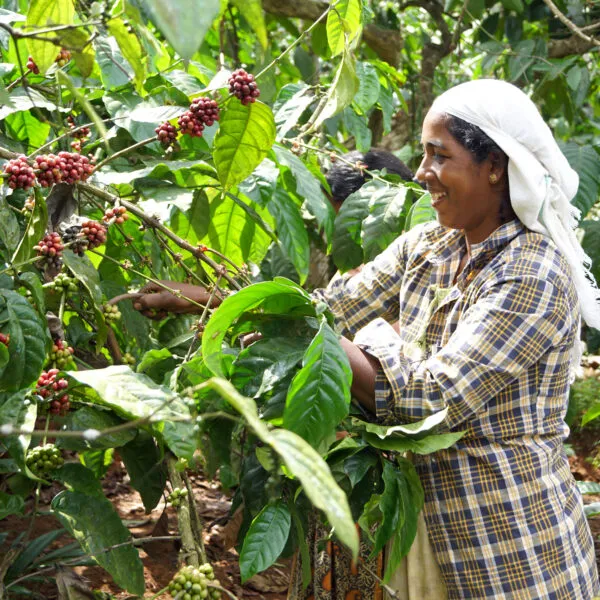After a fungus began decimating her neighbors’ coffee crops in Chiapas, Mexico, in 2012, María Esther Saut Niño knew she had to act. First, she and her husband converted part of their cattle ranch into a plant nursery to cultivate healthy coffee-plant seedlings for local farmers. Then, as the outbreak deepened, she and her husband turned the entire ranch into a shaded coffee farm, eventually distributing 20 million healthy plants to the community.
“People were in despair,” Saut recalls. “They didn’t think they’d be able to restore their farms, but we said, ‘Look at us!’ We showed them what we were able to do with land that had once been cattle pasture.”
Sign up for useful tips to green your life and protect our planet.
Since then, Saut continues to sow hope for a sustainable future, doing everything she can to lift up her community. Finca La Fortaleza, the Rainforest Alliance Certified coffee farm that she owns with her husband, has become a model for area farmers, who visit to learn about planting shade trees, enriching soils, and other sustainable and climate-smart methods. Saut also encourages local small-scale farmers to join forces so that they can apply for Rainforest Alliance certification in groups.

Supporting her neighbors also means demonstrating how important it is to nourish the land that provides their livelihoods. The densely forested Finca La Fortaleza, which achieved Rainforest Alliance certification in 2018, now teems with biodiversity. “We’ve become like a wildlife corridor for migratory species,” Saut says, marveling at the number of bird species that have returned. A Google Earth comparison of her farm in 2010 and today shows a greener, healthier landscape.
Saut credits Rainforest Alliance certification, which the farm achieved in 2018, with making it possible for her to achieve so much so quickly. “We knew that we wanted to farm more sustainably and protect the environment, but we didn’t know exactly how,” she says. It was the program’s comprehensiveness—from the environmental and social aspects, to product traceability—that made it the ideal framework for her. She appreciates that the Rainforest Alliance certification program “is the result of research and the expertise of many people all over the world.”
Having become an expert herself, Saut delights in sharing her knowledge of more sustainable farming with her community. Because the population is largely Indigenous, she hired a woman who speaks the local language, Tzeltal, to assist with these efforts. But Saut’s involvement didn’t stop there: Realizing that these families had little access to healthcare, she forged an agreement with local doctors to serve the community. She also involves local women in coffee processing and the cultivation of model plots of specialty beans so that the community can target higher-paying markets.
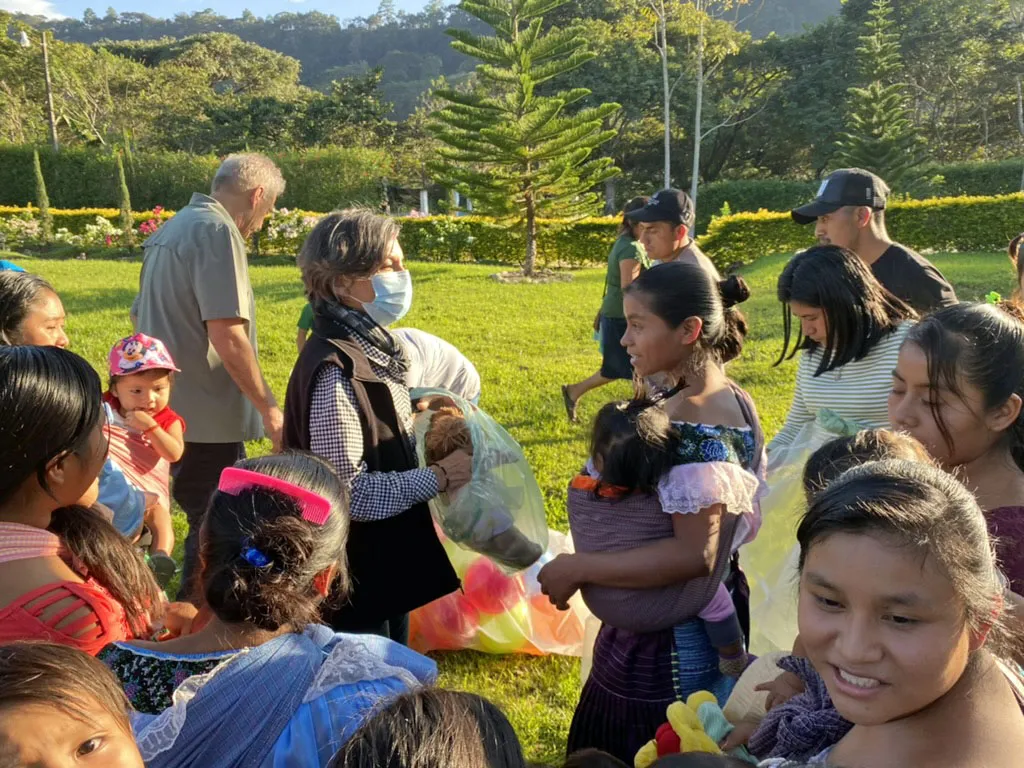
To further support the community, she and her husband started a coffee trading company, COFINCAF, that sources beans from more than 2,000 nearby farmers. More recently, her husband, son, and a partner created Kali Coffee to roast the beans that COFINCAF buys and to sell them in its retail stores and coffeehouses.
These days, Saut is focused on inspiring a new generation of sustainable farmers. “We want to show kids that they can apply their love of technology to sustainable agriculture. They will need to monitor climate conditions and go beyond traditional knowledge to keep these farms productive.” She’s already working on plans to set up a high-tech training center where young people can take courses and see that coffee farming is a viable career.
While neither she nor her husband are originally from Chiapas, it is where their hearts are now. She says that as a transplant it has been important to show her neighbors “that you are out there working in the fields, and that you want to understand and help them, even if you didn’t grow up here.” She adds, “It’s about integrating yourself into the community and respecting it.”
